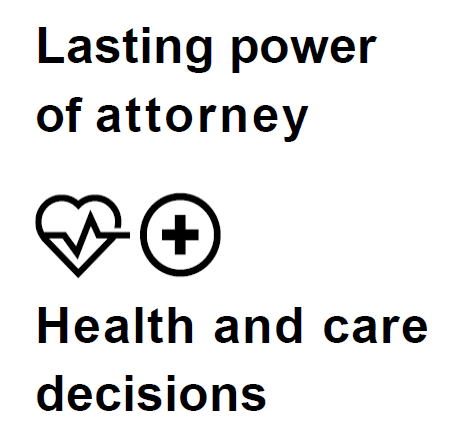Instructions in Health and Welfare Lasting Powers of Attorney
A Health and Welfare Lasting Power of Attorney allows attorneys to make decisions relating to such things as:
-
where you should live
-
what care you should receive
-
consenting to or refusing medical treatment
-
day-to-day matters such as diet, clothes and daily routine
-
decisions about accepting or refusing life-sustaining medical treatment
Differences between an instruction and a preference
Preference
A preference is a wish and should be taken into account when attorneys make decisions but they do not need to follow them.
Instruction
An instruction is binding on the attorneys and must be followed exactly.
What instructions should be included in a Health and Welfare Lasting Power of Attorney
Instruction about where you should live
Would you like to be cared for at home and only go into a care home if you can no longer live independently? If so, it is possible to include a suitable instruction in your power of attorney.
Catering for Religious beliefs in Lasting Powers of Attorney
If are concerned about ensuring your religious beliefs are followed if you lose mental capacity, it is important to include appropriate instructions. Examples include instructions about blood transfusions for Jehovah’s witnesses and instructions regarding diet for Jewish, Muslim and Hindu people.
Medical treatment
Instructions about medical treatment can be included in a Power of Attorney. This is often about end of life care, for example the circumstances when you should not receive life sustaining treatment.
It is important to note that currently instructions to assist with suicide are not validThis is because assisted suicide is currently illegal in England and Wales
Organ donation
It is possible to include instructions about organ donation for example your attorneys must not remove your name from the organ donation register.organ donation is currently on an ‘opt out’ basis.
Vegans and vegetarians
Important beliefs such as veganism and vegetarianism require carefully worded instructions to ensure that your beliefs are met when you no longer have mental capacity to make decisions for yourself. In particular, Lasting Powers of Attorneys for vegans must be carefully planned as the instructions will impact many different areas of life.
Common instructions in Health and Care Lasting Powers of Attorney
- Instruction to receive care at home
- Instruction about do not resuscitate
- Instructions about religious matters
Common mistakes when including instructions
An instruction must be workable in practice and cannot be too vague. For example, if it must be clear what it relates to and how the attorneys will make that decision. It also cannot be against public policy. For example you cannot include instructions about assisted dying in your Lasting Power of Attorney because assisted suicide is not currently legal in England. If a Power of Attorney contains an invalid instruction, the Office of the Public Guardian may apply to the Court of Protection to ‘sever’ the instruction or refuse to register the Lasting Power of Attorney.
Advance decisions and living wills
Advance decisions are also known as living wills. If a Health and Welfare Lasting Power of Attorney is created after an advance decision, the advance decision will be invalid if an attorney has been given authority to make decisions about the same treatment.
Your attorney cannot consent to any treatment refused in the advance decision if it has been made after a Power of Attorney.
It is important to review any advance decision or living will when creating a Lasting Power of Attorney.
How we can help
 Our solicitors are experienced in creating Lasting Powers of Attorney and advising on instructions to meet your wishes. Paul Clark and Natasha Yelland regularly advise clients about Lasting Powers of Attorney. They are able to advise on all aspects of the process.
Our solicitors are experienced in creating Lasting Powers of Attorney and advising on instructions to meet your wishes. Paul Clark and Natasha Yelland regularly advise clients about Lasting Powers of Attorney. They are able to advise on all aspects of the process.
If you do not have a Power of Attorney in place or you have a Lasting Power of Attorney and would like us to review it, then please email Paul or Natasha. Alternatively, please call us on 01260 769 639 to make an appointment.
We offer a free initial consultation at our office or in your own home. Alternatively, meetings can be carried out online (e.g. via Teams).







